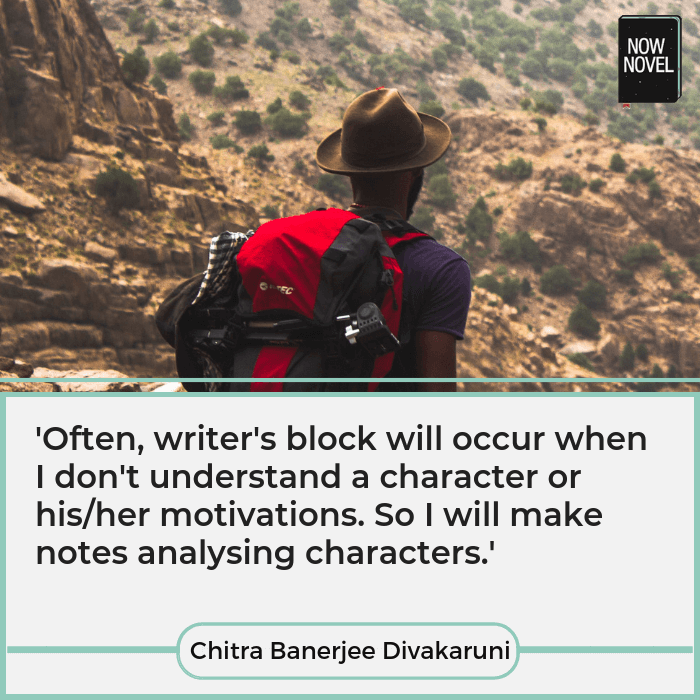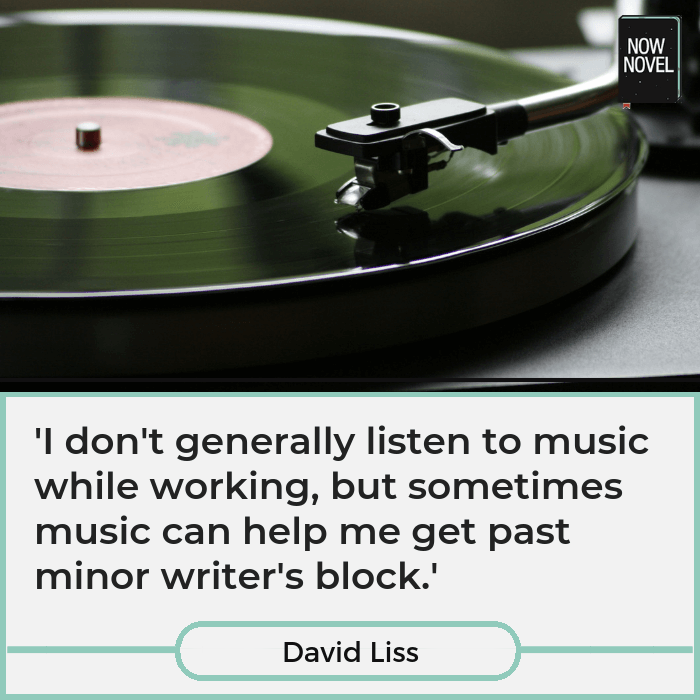Writer’s block is frustrating when you have a story you want to tell but can’t find the words to tell it. However, feeling stuck needn’t be the end. Try the tips below:
1. Set a regular writing time
Set a regular time for writing. It doesn’t have to be every day. It can be every other day, or every Saturday, or any other regular series of days that you can schedule.
Set an appointment with ‘the muse’, even if you just write ‘the cat sat on the mat’ (as Maya Angelou did when blocked). It will train your creative mind to get into storytelling mode on cue.
2. Get re-inspired reading loved authors
Dip into the writing of some of your favourite writers if you’re struggling to create. Try copying out particularly well-crafted passages. As you read a page, a poem, ask:
- Why is this line effective?
- How can I apply what works about this (pace/tone/formatting) to my current work?
Notice their rhythm and word choices, the pace of a scene, the tension in a piece of dialogue. What kind of details develop the characters and setting?
Learning from other writers is an important part of topping up your inspiration (though when you’re drafting, you may prefer to avoid other authors so as not to be overly influenced).
3. Jog inspiration using writing prompts
You may find it helpful to read books that include writing prompts and creativity exercises. Some excellent choices are Steering the Craft by Ursula K. Le Guin, The Art of Fiction by John Gardner, Nail your Novel by Roz Morris and What If? by Anne Bernays and Pamela Painter.
Try one of the 50 writing prompts here. Sometimes a simple exercise will be all it takes to get into the writing zone.

4. Give yourself 10 minutes for freewriting
Give yourself only ten minutes. Set a timer. If you still can’t get any words down, use your ten minutes for freewriting – writing the loose associations and images that come to mind. Something may stick out as usable in your story.
You might also try the Pomodoro method. The Pomodoro method suggests working in intervals of 25 minutes with five-minute breaks. Breaking your time down into chunks like this can help you get started and help you keep going (avoiding burnout is key to persevering to the end).
5. Learn how to overcome writer’s block and set goals
It may be that all you need to spur yourself onward are deadlines and goals. These are two things a writing coach can help with.
If you have not already set a deadline for finishing your novel, breaking the process down into reasonable goals, do so now. If you want to finish your book in six months, how many pages or words do you need to write each month? How does that break down into weeks and days?
Keep track of your daily writing in a way that encourages you. Use a spreadsheet, lists in a notebook or a calendar hung on the wall near your writing space.
6. Give yourself permission to write badly
In her book on writing, Bird by Bird, Anne Lamott encouraged her readers to write terrible first drafts. She reassured us that we all write bad first drafts, and that the bad first draft must be written in order to get to the second, better draft. The idea is that the first draft is a “child’s draft” where you let it romp all over the place.
This is where many of us lose confidence. We expect everything we write to shine on first attempt. Give yourself permission to write something that is less than perfect or even very bad. Chances are it is not as bad as you think it is. Even if it’s terrible, nobody other than a coach and/or editor needs to see it until you’re ready.
7. Tackle another part of your story
When you reach a part of your story and writer’s block sets in, consider skipping over a section for now.
Try writing the book out of order. Write the ending first. Write a scene that you’ve been excited about. Write a scene that you haven’t figured out yet.
If the above doesn’t work, set your book aside entirely for a few days and work on something else. Write a poem or a short story or an article. Make notes for the next novel that you want to write if you can do so without becoming too distracted by the idea.
You want to give yourself a short break, not begin a whole new project (a temptation for seasoned procrastinators).

8. Use mind-mapping and other brainstorming methods
Mind mapping begins with a central idea or concept written in a circle in the centre of the page. From this point, you can connect other ideas and concepts as they come to you. [The first step in Now Novel’s idea finder is a brainstorming process in miniature. Try it now.]
Turn finding ideas for a book or for individual plot points into a game. See how many ideas you can come up with in 15 minutes, or force yourself to come up with 25 story ideas as quickly as possible.
Alternatively, try setting your book aside and writing letters or journal entries from the points of view of your characters. This will make them feel more real in your mind’s eye.
9. Try a new writing location
If you normally write in a public place such as a library or coffee shop, try a more private one. Mix up the way that you write. Sit in a sunny park, and write with pen and paper if you normally use a computer. Go to a shopping mall and people watch while you write.
If you can afford to, get away for a night or longer, enjoying your very own writing retreat. At home there are usually many distractions.
10. Partner up with another writer
Some people find they are more likely to exercise with company. Similarly, some writers find ‘writing dates’ can prevent or end writer’s block. Ideally, these are in-person meetups in which you both sit in a coffee shop or at either person’s house writing for a set period of time.
When partnering up, you create accountability external to yourself. (this is also one of the key benefits of working with a coach). Sometimes you need someone to bounce ideas off (or to kick your butt when you’re close to giving up).
11. Pay attention to what your body needs
If you feel blocked, you might just be exhausted. Lack of sleep, a poor diet, too little exercise or some combination of the three could be the cause.
Writers have to be especially careful about succumbing to sedentary lifestyles. Make sure you get up to stretch your legs and walk around at least every half hour.
Although writing is play, it’s also often taxing mental work, so remember to switch off from time to time. Take up yoga, meditation, or another activity that allows you to relax between intense bouts of concentration.
12. Take a break
Breaks are important. Though be sure that you don’t take too long off writing. There’s nothing wrong with taking a week off and coming back with a fresh perspective.
Even if you don’t need that much time off, if you find yourself stuck in a writing session, see what happens if you get out and get active instead.
13. Address fears and expectations
Fear of failure can hold you back. Fear of criticism, of the ‘public’ side of writing, too. You might worry that your work is not good, or that you are writing about topics that will upset those closest to you.
If there is someone in your life who’s a censor in your mind’s eye, turn their picture to face the wall. Your writing is for you, first. The suggestions here will help if anxiety interferes with your writing process..
14. Allow yourself to deviate from the plan
Sometimes you have writer’s block for a good reason: At some point in your story, you took a wrong turn. If you try some of the above suggestions and keep meeting with a feeling of stagnation, you may want to take a look back at your work and ask yourself whether this could be the source.
Remember that an outline is a guide, not a last will and testament. Feel free to take detours from your original planned route if you’ve plotted everything out. If you never outlined, summarize what you have so far and try to create condensed chapter summaries or time-lines for individual characters. Stepping back from a detailed view often helps you see the broader directions of your story’s arcs, and remember the underlying purpose driving developments from scene to scene.
Join Now Novel to enjoy a supportive community of writers and brainstorm your best ideas.
Cover source image by Dmitri Ratushny


9 replies on “How to overcome writer’s block: 14 methods”
A writer;s block could be a disaster!
This is great advice and much of this I do. What works for me to get words to the page, I do experiment with my limited time. But, I try to stick to the basics of early rise and write and evening write and revise.
Hi Courtney,
Thank you for the feedback. That does sound like a good division of the different processes involved. All success for your current writing project(s)!
Great and helpful content this exactly what almost every creative writer needs not only novelists
Thanks so much, Amira. I’m glad you enjoyed this post.
I have the other problem too many ideas to write because I am a multi-genre writer. My latest e-book https://www.draft2digital.com/book/235628 is a romance set in Israel
Interesting choice of setting, Alan.
I’ve always wanted to visit and I have several Jewish friends. I thought for a change I’d write with an audience in mind, Bridget.
I would try to follow your advice. It feels like I’m the most lazy person ever.